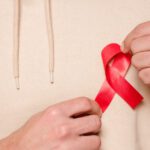
U.S. funding to support millions of people in Africa living with HIV/AIDS could be under threat due to opposition from Republican lawmakers who say funds were being diverted to fund abortions.
The President’s Emergency Plan for AIDS Relief (PEPFAR) is a multi-billion-dollar HIV/AIDS programme that the U.S. government says has saved millions of lives globally since it was launched 20 years ago.
But as the Sept. 30 deadline approaches for the U.S. Congress to reauthorise the programme, PEPFAR is under attack.
Here are some facts about PEPFAR.
What is PEPFAR?
U.S. President George W. Bush launched PEPFAR in 2003 to fund programmes aimed at saving lives and preventing HIV infections in more than 50 countries.
Since its inception, the U.S. government says it has invested more than $100 billion through PEPFAR, saved more than 25 million lives and prevented millions of HIV infections.
Most countries that benefit from PEPFAR funding are in sub-Saharan Africa and include Kenya, Nigeria, Zimbabwe, Uganda, South Africa, Ethiopia and the Democratic Republic of Congo.
PEPFAR must be reauthorised every five years by the U.S. Congress. The next deadline for reauthorisation is Sept. 30.
Why is PEPFAR important?
The PEPFAR initiative includes the provision of life-saving antiretorviral therapy (ART) to more than 20 million people with HIV, including members of the LGBT+ community.
ART has saved the lives of millions with HIV and increased their life expectancy to near-normal levels. It has also allowed patients to maintain viral suppression, the strongest available intervention to prevent HIV transmission.
PEPFAR also supports programmes to support adolescent girls and young women stay HIV-free, and provides funds for malaria and tuberculosis treatment and prevention.
The initiative also supports programmes to ensure babies are born HIV-free and provides critical care and support for millions of orphans, vulnerable children and their caregivers.
In Kenya, for example, PEPFAR makes up more than 60% of the country’s response to HIV/AIDS, and was expected to receive $350 million next year, said Allan Maleche, executive director of the Kenya Legal and Ethical Issue Network on HIV and AIDS (KELIN).
“It is a crucial part towards eradicating HIV/AIDS in Kenya, and has a broader impact towards improving public health in general,” said Maleche.
Research published in medical journal The Lancet in August found that global AIDS deaths in infants and young children have fallen by 80% since PEPFAR’s inception.
Why is PEPFAR under threat?
In June, a group of African politicians and Christian groups – from countries including Kenya, Uganda, Zambia, Ghana, Tanzania and Nigeria – wrote to senior U.S. Congress members saying PEPFAR funds were being misused.
“As you now seek to reauthorise PEPFAR funding, we want to express our concerns and suspicions that this funding is supporting so-called family planning and reproductive health principles and practices, including abortion, that violate our core beliefs concerning life, family, and religion,” it said.
The letter did not provide any evidence.
Most African nations have strict laws on abortion, with the procedure only being permitted if the mother’s life is in danger. In some countries such as Rwanda, women can be jailed for having an abortion.
Now, some Republican lawmakers are proposing to cut or limit PEPFAR funding, citing the accusations that the money is being used to conduct abortions across Africa.
What has been the response?
Health experts and local charities say the allegations are false, and warn that spreading such misinformation could have a devastating impact.
In Kenya, where 10 members of parliament signed the letter, a coalition of more than 45 charities wrote to the National Assembly protesting against the MPs.
In response, the government has sought to distance itself from the 10 Kenyan MPs.
Activists say there is a concerted campaign by conservative Christian organisations in the United States to lobby African MPs and religious groups to push against liberal policies in areas such as abortion, LGBT+ rights or sex education.
Reporting by Nita Bhalla.
GAY TIMES and Openly/Thomson Reuters Foundation are working together to deliver leading LGBTQ+ news to a global audience.
The post Why is US funding for HIV/AIDS relief in Africa under threat? appeared first on GAY TIMES.

0 Comments